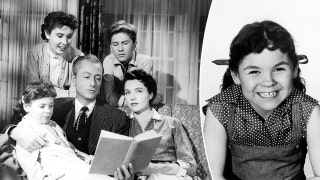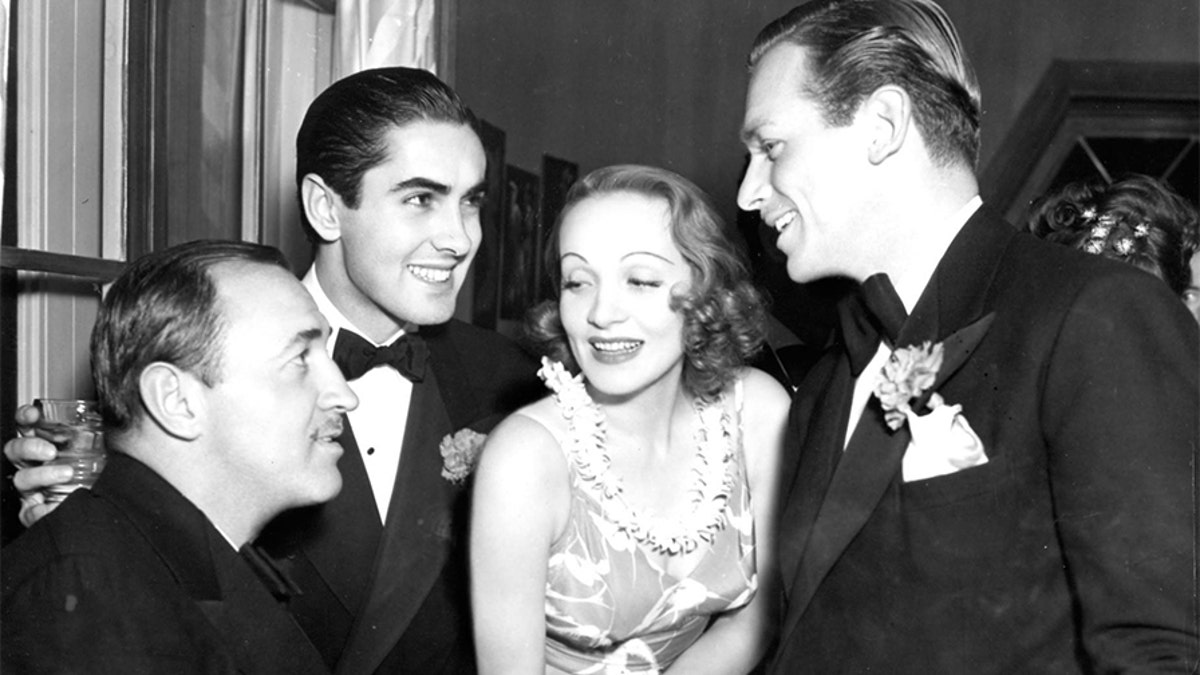
Marlene Dietrich surrounded by admirers. (Marlene Dietrich Collection GmbH, Munich, Germany)
Hollywood was never far from Peter Riva’s childhood.
His father was a set designer who worked on Broadway and television. His mother, an actress.
And his grandmother was Marlene Dietrich.
“You learned very early on she was the matriarch of the family,” the 67-year-old told Fox News. “If mom was doing live television, she would come around … She could be the grandmother cooking dinner for [my brother] Michael and I.”
Riva's mother has previously written a memoir about the film icon. He also shared there are potential plans to publish Dietrich's German poems in English this year.
Dietrich, was recognized as an international symbol of glamour and sex for more than half a century. She died in 1992 at age 90, and Riva, now a literary agent, continues to protect the her legacy.
But as a child, Riva simply viewed Dietrich, one of the most celebrated Hollywood stars of all time, as the woman he called “Massy.” However, he knew early on there was something different about her.
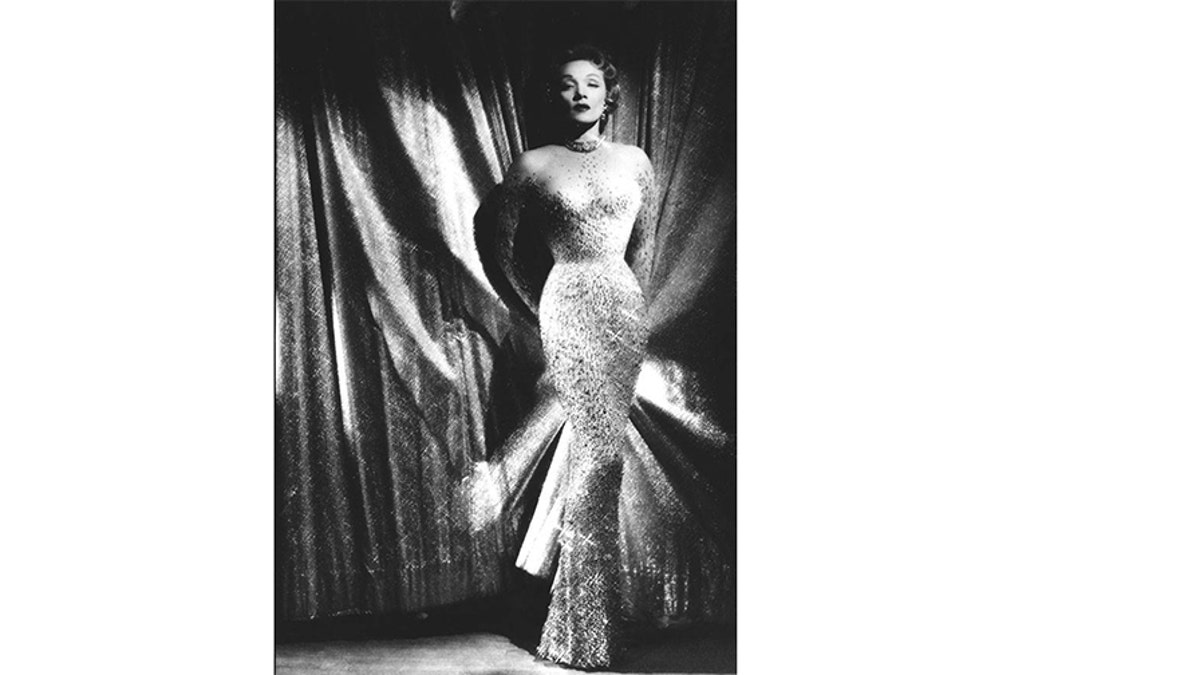
(Marlene Dietrich Collection GmbH, Munich, Germany)
“If the phone would ring and she would answer it, you could see her body posture changed,” recalled Riva. “Her attitude changed. We had to learn very early on as kids at that point she became Marlene. She wasn’t Massy anymore. Her work came first. There was no exception to that.”
Riva insisted that despite the Berlin film star’s numerous accolades as a fashion trendsetter, sought-after screen siren and cabaret performer, she never forgot her time entertaining the troops during World War II.
“That was the most important thing to her, much more than anything,” said Riva.
According to the Library of Congress, Dietrich made two overseas USO tours. The first was to North Africa and Italy, making her the first entertainer to reach rescued soldiers. For her second tour, which lasted 11 months, she entertained near the front lines in France and Germany.
The CIA added that after Dietrich became an American citizen in 1939, she felt it was her duty to defend the country and use her talent to make a significant contribution to the war effort.
She recorded a number of anti-Nazi albums in German to create skepticism among listeners. In 1941, she became one of the first celebrities to raise war bonds.
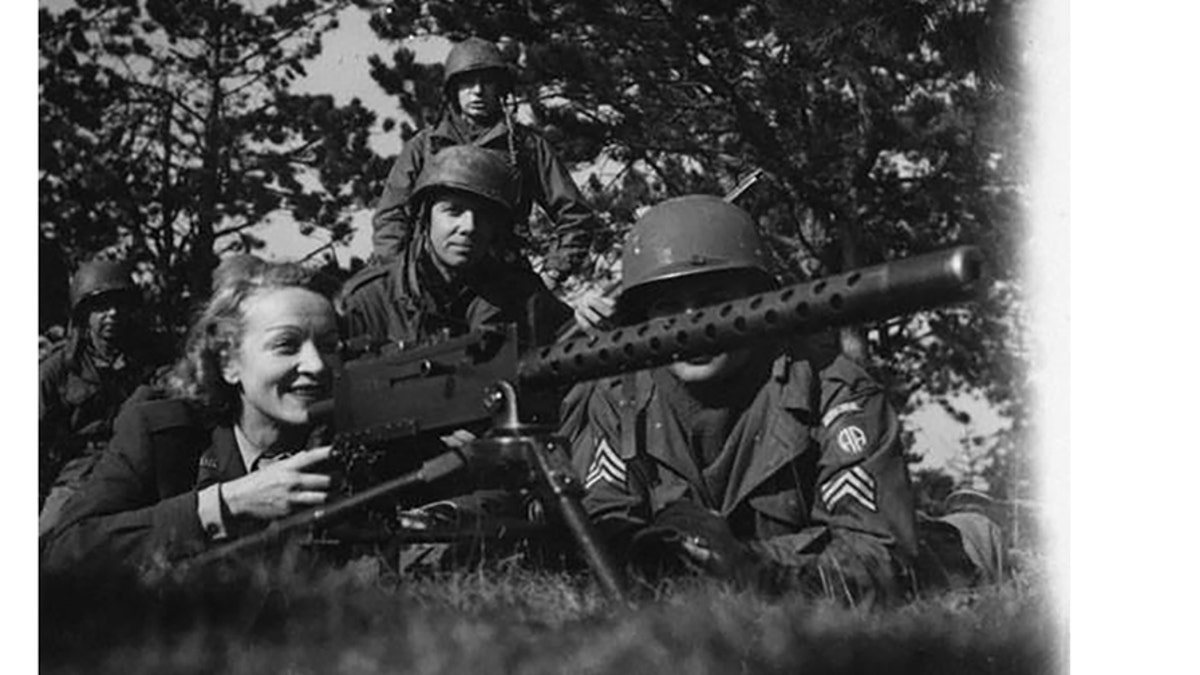
(Marlene Dietrich Collection GmbH, Munich, Germany)
By 1945, Dietrich earned the Presidential Medal of Freedom.
Dietrich claimed she was approached by Nazi Party representatives to return to Germany, but she turned them down.
Riva insisted Nazi leader Adolf Hitler himself “was really desperate” to get Germany’s beloved star back.
“She was determined Hitler needed to be defeated… No amount of money or promises from Hitler was going to change her mind," he said.
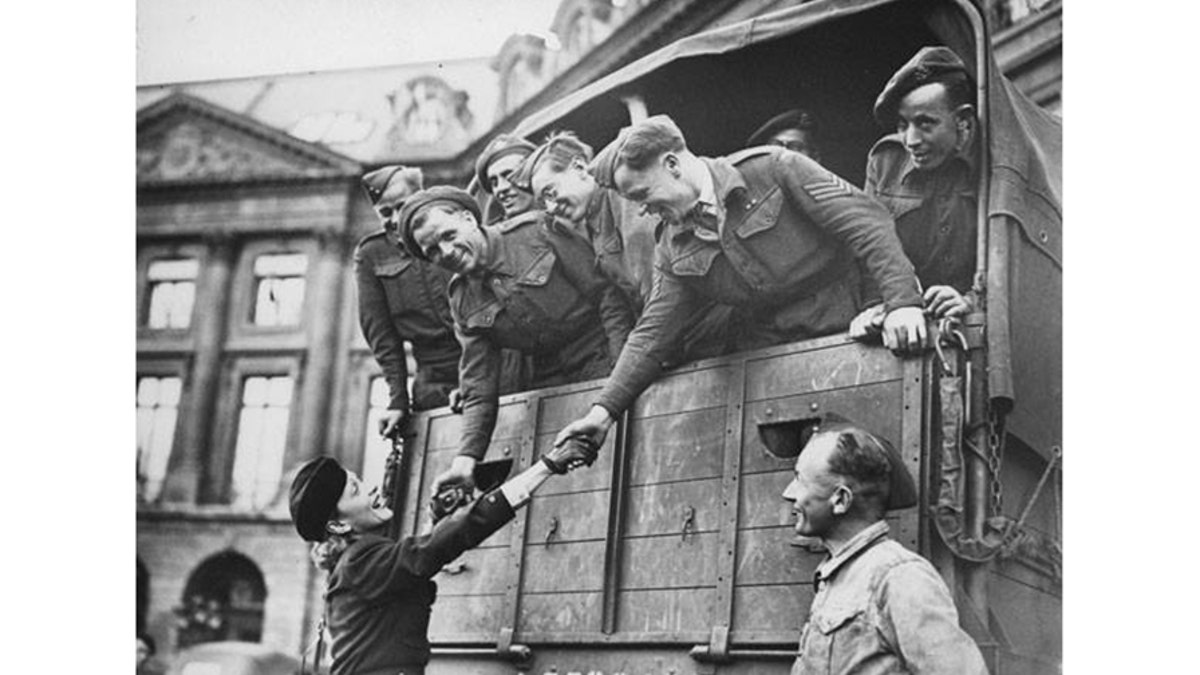
(Marlene Dietrich Collection GmbH, Munich, Germany)
Riva revealed that on the same weekend Dietrich completed filming of one of her most recognized films “The Blue Angel,” she and her family escaped from harm’s way.
“Marlene had applied to become an American citizen earlier than people think, but it was granted in 1939,” he explained. “She made ‘The Blue Angel’ on a Saturday night in Berlin. On Sunday, she… began her journey to America… And then in 1931, she came back for my mother.”
But Dietrich never forgot those who helped her along the way.
“Hollywood, in order to rescue a lot of people who were discriminated by the Third Reich, they rallied around people who had unique talents,” said Riva. “Marlene was more worried about the lighting guy, the makeup artist… So every year [from 1936] she would spend some time in Paris and she would call her friends... She would give them money, buy them clothes, and put them on a train to Portugal. Because they had to get out… And the fact that they were Jewish was going to condemn them.”
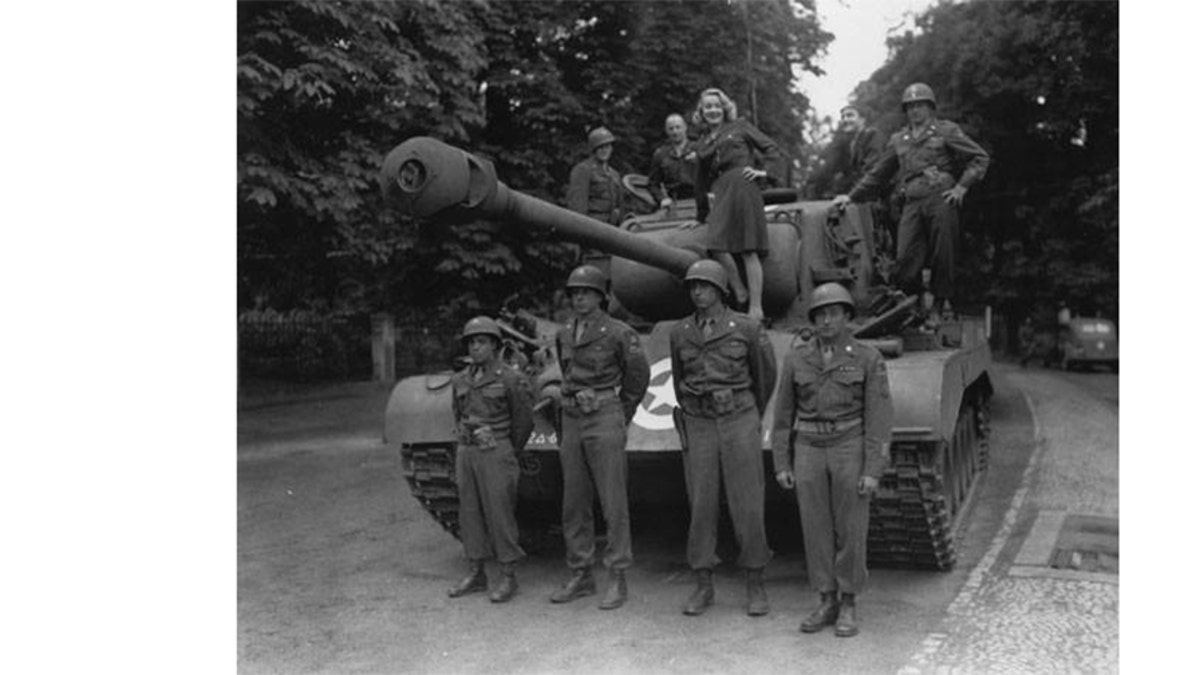
(Marlene Dietrich Collection GmbH, Munich, Germany)
Later, Dietrich’s career flourished in the states. And her list of lovers became legendary.
“I didn’t have to hear about them – I met them most of the time!” said Riva. “It wasn’t abnormal to go to Marlene’s apartment and see one of them in his pajamas. It wasn’t unusual for us as kids. It wasn’t like a sexual tryst and all that nonsense. For her, it was adoration and love.
"The sex? She wasn’t particularly interested in that according to my mother… She understood it was interesting to everybody else. But for her it was more about romance… taking care of their needs. And if she ever snapped her fingers, they would come back.”
Even novelist Ernest Hemingway was captivated by the star. In 2013, The Guardian reported about a set of unpublished letters and telegrams, unveiling their passion for each other.
“Hemingway, he wasn’t a lover,” clarified Riva. “When he was free, she wasn’t and vice versa. So they never had that physical thing, but goodness, did they develop a wonderful relationship. It always bordered on a little sexual.
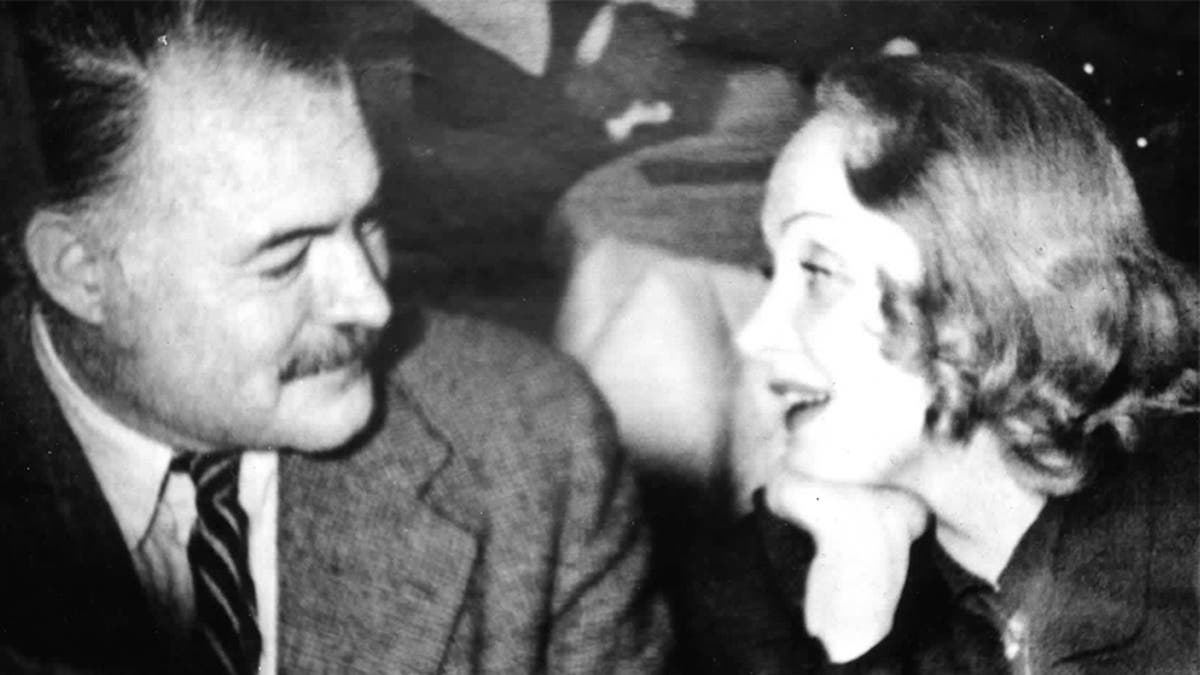
Marlene Dietrich with Ernest Hemingway. (Marlene Dietrich Collection GmbH, Munich, Germany)
"Marlene would fall in love with a song. She would go to a restaurant and if the chef did something perfect, she’d fall in love with the chef for 20 minutes as he explained how he cooked something. She was passionate about things.”
And as Dietrich became older, her voracious appetite to entertain grew. Riva claimed that even at age 65, she was performing in 65 different cities in one year alone.
As for those rumors about the actress being a recluse in Paris in her later years? Nonsense, he said.
“We used to struggle to pay her phone bill, which was $5,000 a month,” he said. “Hardly a recluse. And 20-30 letters a day? Good Lord, had the internet been around then, she would have been tweeting all the time!”
The gossip of Dietrich never leaving her bed may have come from the fact she only allowed family, close friends and her secretary to visit. And she didn’t want to be photographed.
“She said, ‘I didn’t work for 60 years to have age destroy people’s image of me,’” Riva recalled. “’That’s what they need. That’s what lasts for hundreds of years.’”
Instead, Dietrich spent her time pursuing her other loves.
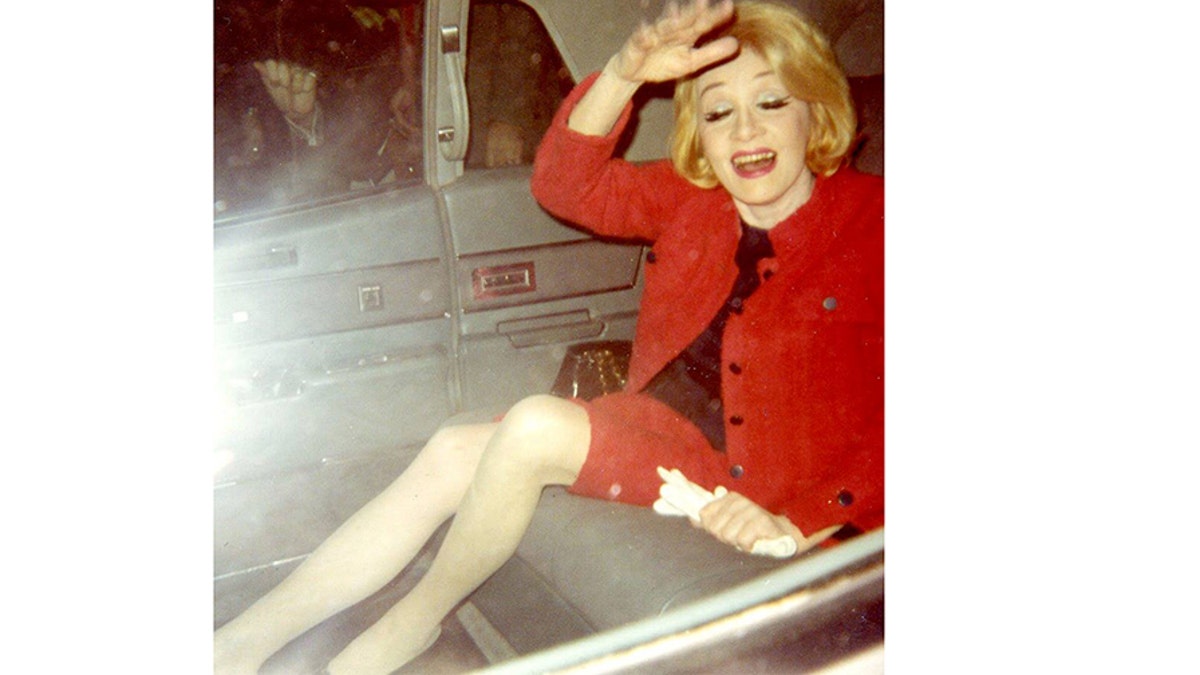
A candid Marlene Dietrich in her later years. (Marlene Dietrich Collection GmbH, Munich, Germany)
“She was a wonderful cook,” said Riva. “She loved crime books. Gobbled them up. She wasn’t really a big fan of watching TV… She thought [Lucille Ball] was a huge talent, but didn’t like her show very much. She thought it was too confined.”
The other rumor of Dietrich becoming an alcoholic as she grew older? Riva dismissed that too.
“Absolutely not true,” he said. “She was drinking her whole life. This is the generation that… Alcohol was a regular part of every single day… My mother would joke, ‘When you die, we’re going to give your body to science to find out how come your liver and kidneys still work.’ Because this was a woman who, even at the age of 90, was drinking a bottle of champagne and half a bottle of scotch a day.
"She’d go breathe oxygen for five minutes [to avoid a hangover] and go on with her day… Drinking that much was normal in her time. So she just continued right up to when she died, a couple days before anyway.”
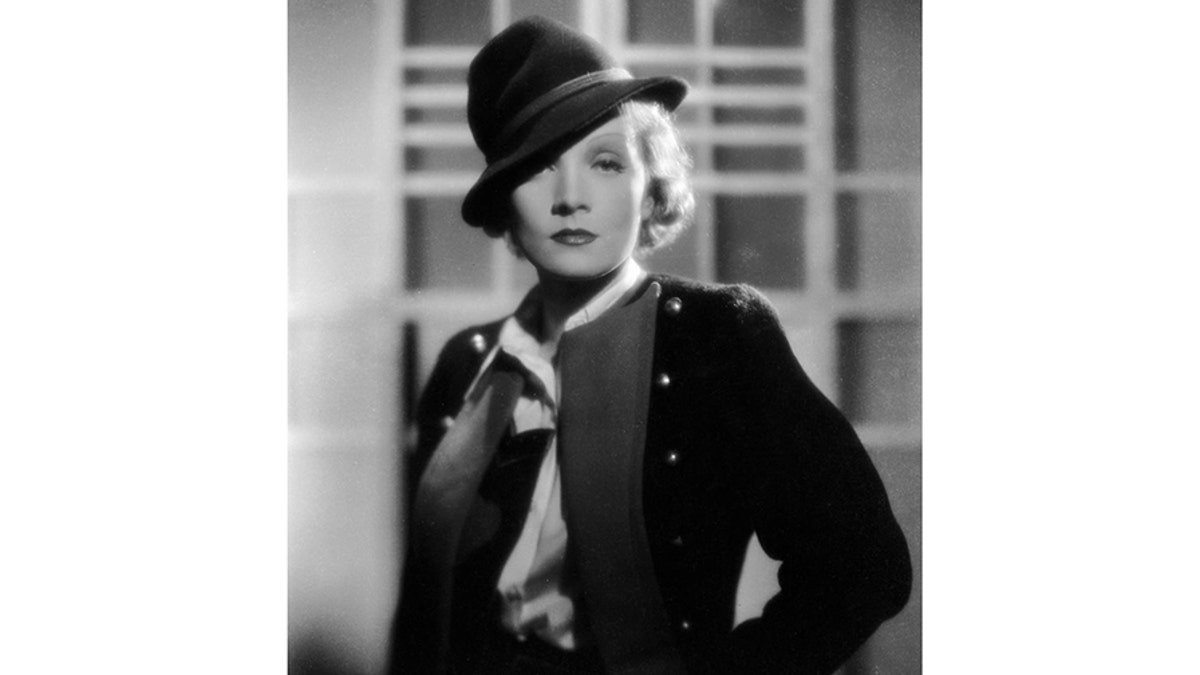
(Marlene Dietrich Collection GmbH, Munich, Germany)
She also stressed Dietrich’s final moments were far from tragic. She died in May, her favorite month. Her beloved flower, geraniums, were in full bloom. Her face, chosen for the Cannes Film Festival that year, filled the streets of Paris. And she was surrounded by photos of her admirers.
"She passed away looking beautiful," he said.






